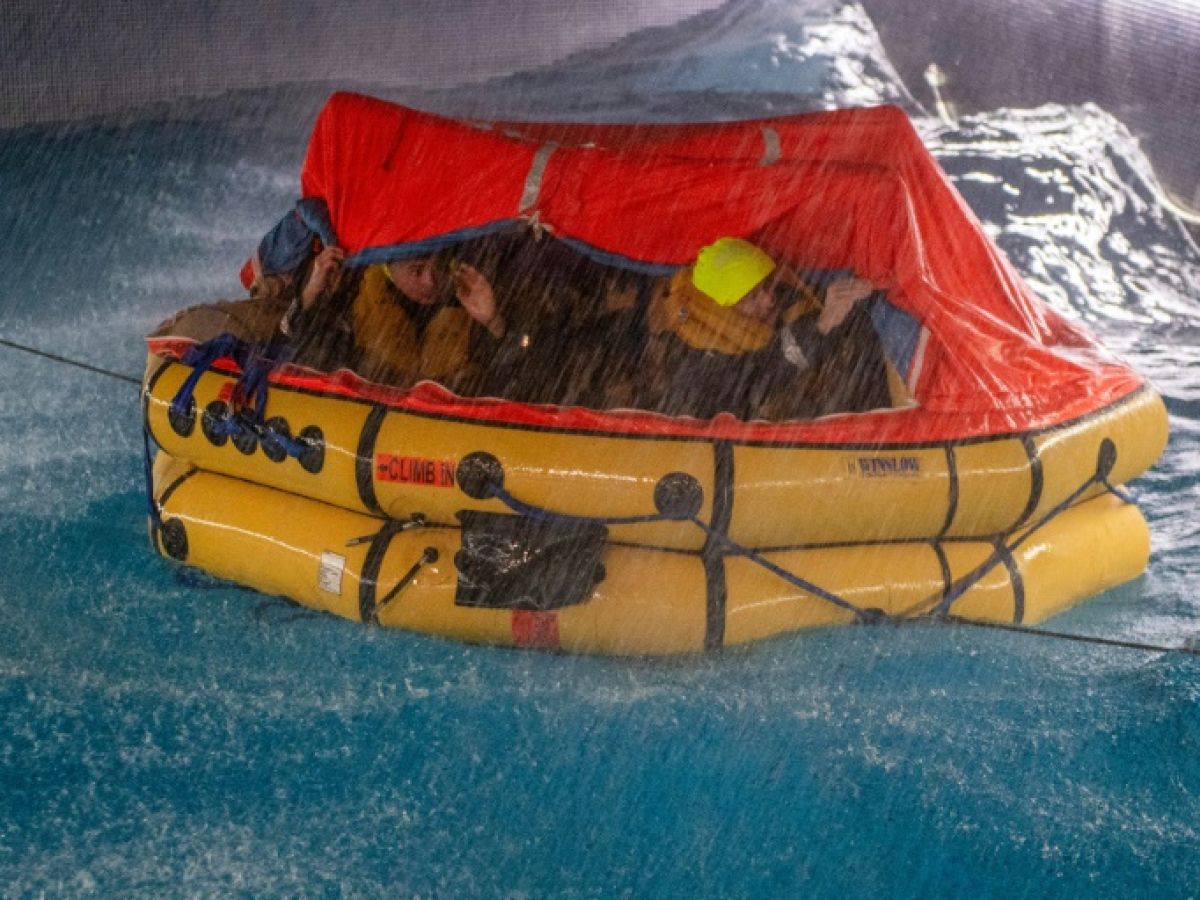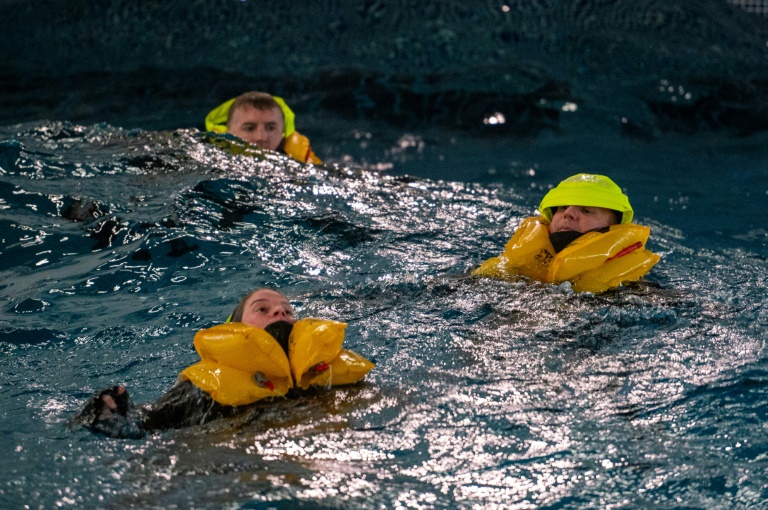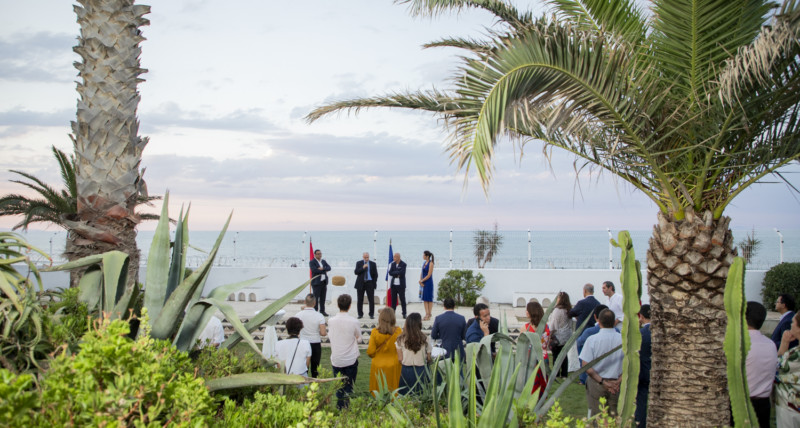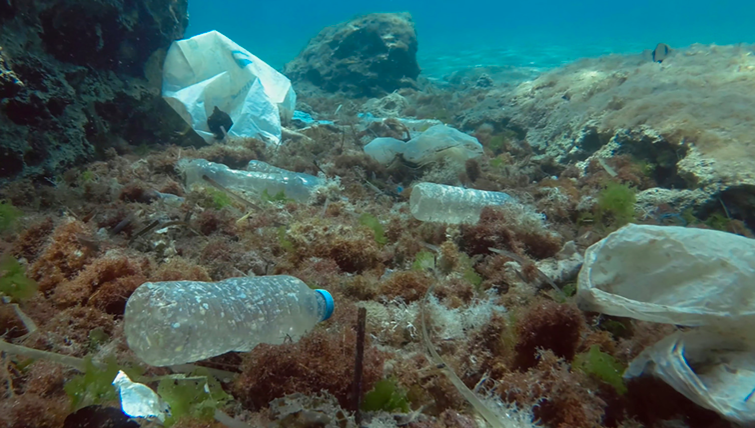Members of The Arctic Challenge expedition train at an aviation training center in Dubai, on June 24, 2024 in the United Arab Emirates.
In an indoor swimming pool in Dubai, United Arab Emirates, three rowers train on artificial waves as they prepare to brave the Arctic Ocean on an expedition to raise awareness of marine pollution.
These expatriates, two British and one Irish, are about to go from one extreme to another: from the summer heat of the Gulf country where they live, to the freezing temperatures of one of the regions of the world most affected by climate change, to become the first to attempt the crossing in threes, and with a woman on board.
« By making this expedition, breaking records and raising awareness, we can (…) inspire students, business leaders and others to be actors of the change they want to see, » says team leader Toby Gregory.
« The biggest danger to our planet is that everyone thinks someone else will save it, » he adds.
The 46-year-old, who works as a communications consultant for princely families, rowed across the Atlantic Ocean in 2023 and came back shattered.
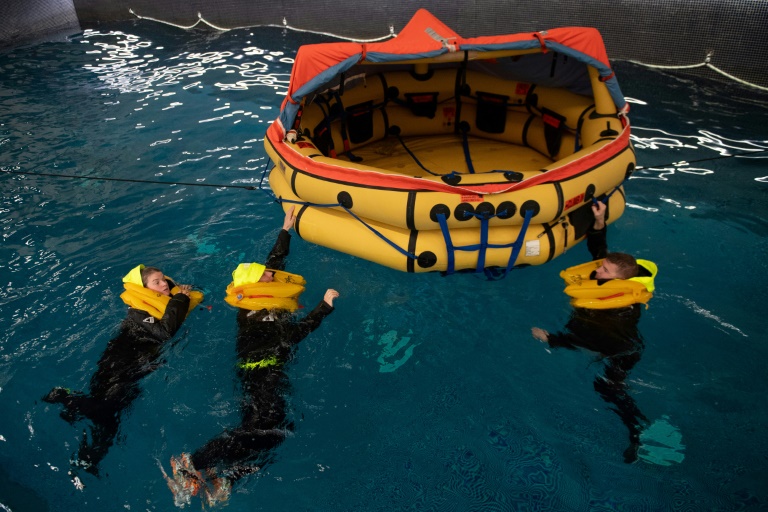
Members of The Arctic Challenge expedition train at an aviation training center in Dubai, on June 24, 2024 in the United Arab Emirates (AFP – Ryan LIM)
« I saw a lot more plastic than I’d ever imagined, » he says. According to the UN, plastic accounts for 85% of marine litter.
He then founded The Plastic Pledge, a program aimed at raising awareness of the issue among up to a million schoolchildren in various countries, and launched the « Artic Challenge » in partnership with the United Nations Environment Programme’s (UNEP) marine pollution campaign, Clean Oceans.
With his companions Andrew Saville, 39, and Orla Dempsey, 30, he will embark at the end of July aboard an eight-meter Emirati-flagged boat, without sail or engine, for a 20-25 day voyage.
Members of The Arctic Challenge expedition train at an aviation training center in Dubai, on June 24, 2024 in the United Arab Emirates (AFP – Ryan LIM)
With the strength of their arms, the three rowers will cross at least 1,500 kilometers, taking turns every two hours, from Tromsø, Norway, to Longyearbyen, the capital of the Norwegian archipelago of Svalbard, a region warming three times faster than the global average.
The journey is around 1,000 km in a straight line, but will take a winding route depending on tides, currents and storms.
By setting off at this time of year, when the sun shines continuously in the polar region, they hope to maximize the use of the solar panels installed on the boat.
- Between 0 and 10 degrees –
To prepare for this challenge, the team trained for almost two months outdoors, but the scorching Dubai summer forced them to continue training indoors.
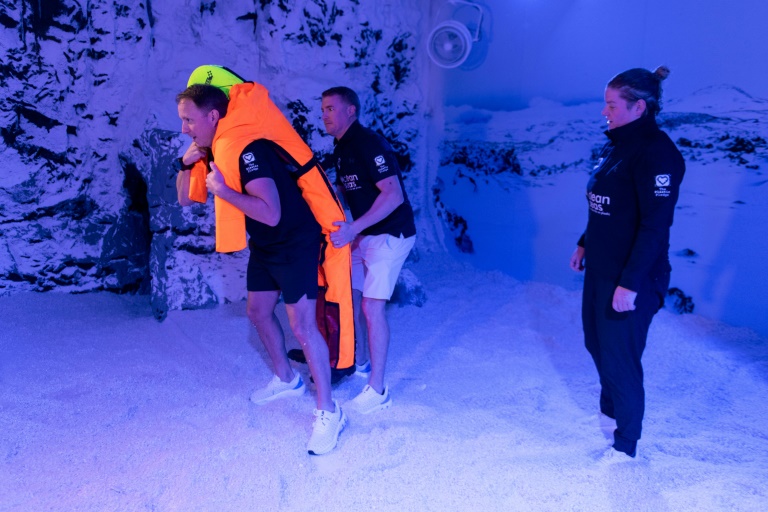
Members of The Arctic Challenge expedition train in Dubai, on June 24, 2024 in the United Arab Emirates (AFP – Ryan LIM)
That day at the Dynamic Advanced Training Centre, the rowers put themselves in storm conditions, facing waves, rain, thunder and even artificial lightning.
« The most important thing for us is to get used to the equipment we’re going to be wearing, » explains Andrew Saville, who holds the position of Operations Manager at the Port of Dubai.
It’s more difficult, he concedes, to prepare for the temperatures expected between 0 and 10 degrees Celsius in the Arctic, when the thermometer reads over 40 degrees outside.
But the trio can still count on one of the air-conditioning-addicted emirate’s extravagances: Ski Dubai, a covered resort in the middle of a shopping mall.
(l-r) Members of The Arctic Challenge expedition Andrew Saville, Oral Dempsey and Toby Gregory at an aviation training center in Dubai, June 24, 2024 in the United Arab Emirates (AFP – Ryan LIM)
« We’re lucky to have the facilities we need to train, » says Orla Dempsey.
In 2021, this former sports teacher turned digital educator was one of three members of the women’s team that broke the record for rowing across the Pacific Ocean from San Francisco to Hawaii in the USA.
Today, she aims to become the first woman to take on the challenge of the Arctic Ocean. « The most important thing is that I won’t be the last, as this will pave the way for others, » she hopes.
Source: Sciences et avenir


